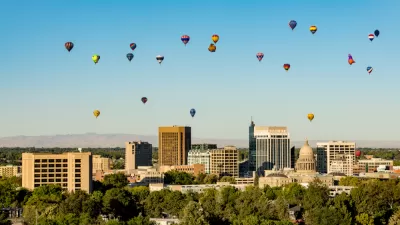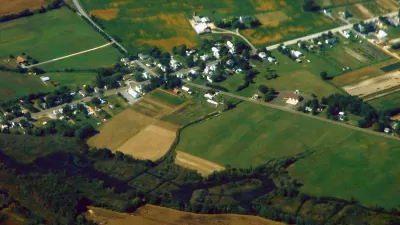The study compares data between 1993 and 2009.

A Wildlife Conservation Society press release announces the findings of a new study published in the Nature Communications journal, which finds that humanity's footprint is now growing slower than the economy and population.
Specifically, the "study finds that while the global population grew 23 percent and the global economy grew 153 percent between 1993 and 2009, the global human footprint grew only 9 percent," according to the press release.
Despite that seeming good news, the study still has plenty of bad news to go around. According to its findings, three-quarters of the planet has been altered, while "97 percent of species-rich regions are seriously altered."
Researchers from the University of Northern British Columbia, the University of Queensland, the Wildlife Conservation Society (WCS), and six other universities completed the study.
FULL STORY: Human footprint surprisingly outpaced by population and economic growth

Alabama: Trump Terminates Settlements for Black Communities Harmed By Raw Sewage
Trump deemed the landmark civil rights agreement “illegal DEI and environmental justice policy.”

Planetizen Federal Action Tracker
A weekly monitor of how Trump’s orders and actions are impacting planners and planning in America.

The 120 Year Old Tiny Home Villages That Sheltered San Francisco’s Earthquake Refugees
More than a century ago, San Francisco mobilized to house thousands of residents displaced by the 1906 earthquake. Could their strategy offer a model for the present?

Ken Jennings Launches Transit Web Series
The Jeopardy champ wants you to ride public transit.

BLM To Rescind Public Lands Rule
The change will downgrade conservation, once again putting federal land at risk for mining and other extractive uses.

Indy Neighborhood Group Builds Temporary Multi-Use Path
Community members, aided in part by funding from the city, repurposed a vehicle lane to create a protected bike and pedestrian path for the summer season.
Urban Design for Planners 1: Software Tools
This six-course series explores essential urban design concepts using open source software and equips planners with the tools they need to participate fully in the urban design process.
Planning for Universal Design
Learn the tools for implementing Universal Design in planning regulations.
Clanton & Associates, Inc.
Jessamine County Fiscal Court
Institute for Housing and Urban Development Studies (IHS)
City of Grandview
Harvard GSD Executive Education
Toledo-Lucas County Plan Commissions
Salt Lake City
NYU Wagner Graduate School of Public Service





























